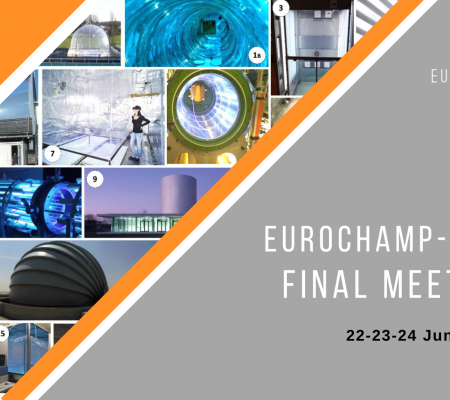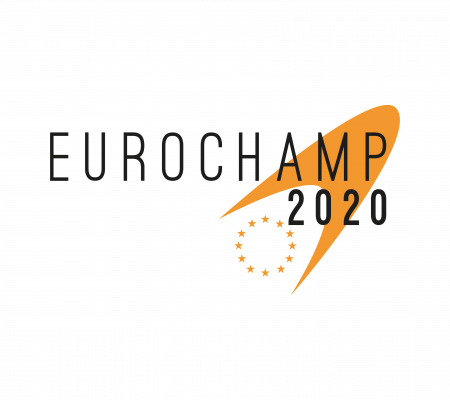

The context
Chemical processes in clouds have been suggested to contribute substantially to organic aerosol particle mass. However, considerable uncertainties exist, e.g., with regards to the nature of the resulting aerosol particles which might be metastable and loose at least part of their mass during the cloud droplet evaporation.
The PARAMOUNT project, funded by the French National research Agency ANR under the Bilateral France/Germany funding program, aims at investigating cloud processes which are able to process organic constituents and produce organic aerosol particle mass. The project will focus on the role of multiphase chemistry of relevant precursors such as polyfunctional carbonyls and acids.
Core to the PARAMOUNT project are atmospheric simulation experiments in the large-scale (4.2 m3) stainless-steel CESAM chamber (www.cesam.cnrs.fr). Chamber experiments will allow to study the organic mass production by chemical in-cloud processing of individual compounds, or mixtures of them, using different seeds and oxidant precursors under different environmental and diurnal conditions. The organic mass increases during the cloud episodes will be investigated. The partitioning of organic compounds under cloud conditions will be studied to evaluate possible enrichments of organic carbonyl compounds.
Your task
The successful candidate will work closely with national and international collaborators and is expected to lead the experiments on the CESAM simulation chamber.
The role will involve:
• Carry out the laboratory experiments using the large set of CESAM instruments, with a special emphasis on PTR-TOF-MS and ACSM-ToF operation
• develop accurate methodology to improve the realism of the cloud generation protocols
• Improve the reliability of the observation of secondary aerosol generation and it related chemical composition and physical properties;
• Perform the data analysis
• Present results at national and international meetings
• Publish results in high-impact peer-reviewed journals
Your profile
Applicants should hold a doctorate/PhD in either atmospheric physics or chemistry, or related field, with a strong experience in experimental work (aerosol, optics and/or spectroscopy).
Candidates are expected to demonstrate:
• Ability to drive and perform novel experimental work of international standing
• The ability to work collaboratively, yet independently, as part of a team
• Ability to interpret and combine experimental results from multiple and diverse instruments
• Strong computing skills, including the knowledge of at least one of the following high-level languages for analysis of large datasets: R, Python, Igor, IDL, Matlab….
• Good English language skills.
Working Environment
The Laboratoire Interuniversitaire des Systèmes Atmosphériques (LISA) is an international leading French institution in atmospheric chemistry and physics for climate, air pollution and human health.
Joint research unit of the CNRS, the University Paris-Est Créteil and University of Paris, the LISA laboratory is based in Créteil, in the outskirts of Paris, less than 30 minutes by public transport (metro and suburban train) from Paris city centre.
The successful candidate will benefit from the international working environment of MEREIA group at LISA (>15 staff members, post-doc and graduate students of more than 5 nationalities), and will profit from an interdisciplinary, innovative and dynamic extensive training, in addition to personal development possibilities.
The successful candidate will hold a contract from University of Paris-Est Créteil (UPEC). The first employment contract will be of 18 months but could, in case of success, lead to a longer position.
Net monthly salary around 2100€, depending on experience.
Please direct enquiries on application to:
Prof. Jean-François Doussin: jean-francois.doussin[a]lisa.ipsl.fr
Dr. Mathieu Cazaunau : mathieu.cazaunau[a]lisa.ipsl.fr
Prof. Bénédicte Picquet-Varrault : benedicte.picquet-varrault[a]lisa.ipsl.fr
Dr. Paola Formenti: paola.formenti[a]lisa.ipsl.fr




